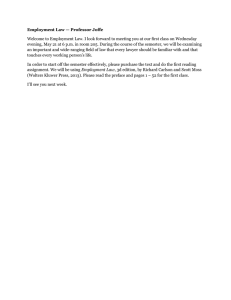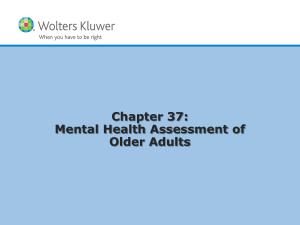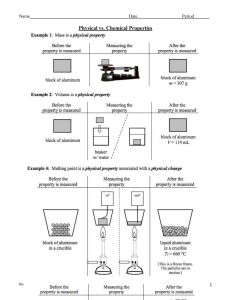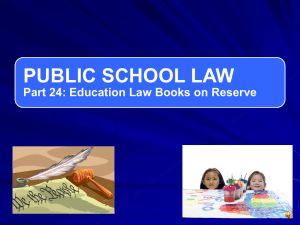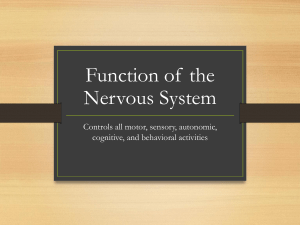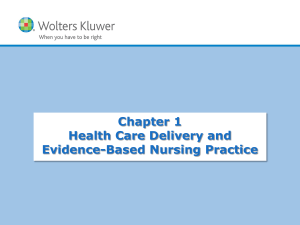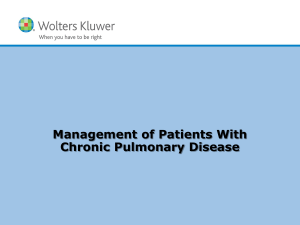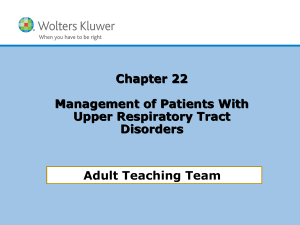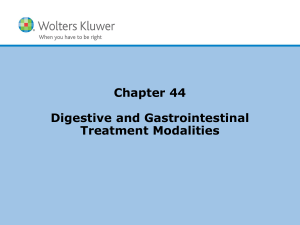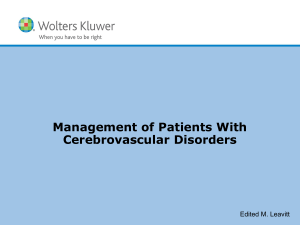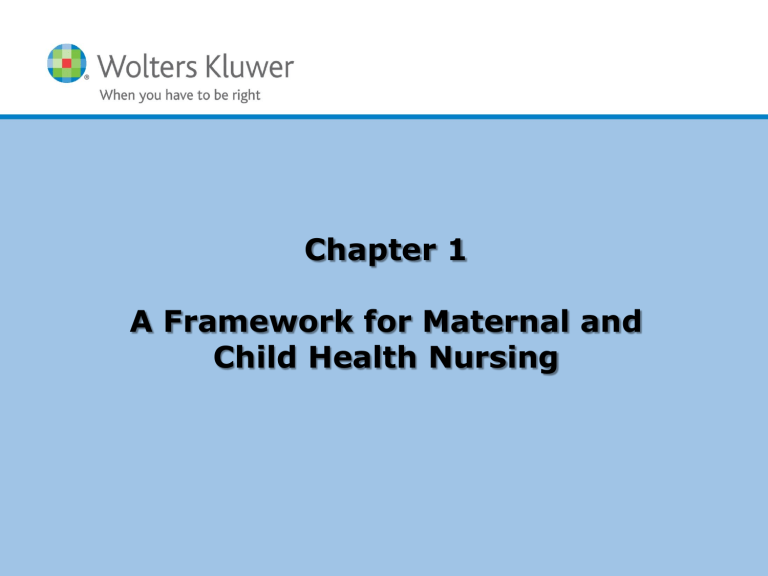
Chapter 1 A Framework for Maternal and Child Health Nursing Primary Goal of Maternal and Child Health Nursing: The promotion and maintenance of optimal family health to ensure cycles of optimal childbearing and childrearing. Copyright © 2018 Wolters Kluwer · All Rights Reserved Maternal and Child Health Nursing Practice Throughout the Childbearing‒Childrearing Continuum Provision of preconception health care Provision of nursing care of women throughout pregnancy, birth, and postpartum period Provision of nursing care of children from birth through adolescence Provision of nursing care to families in all settings Copyright © 2018 Wolters Kluwer · All Rights Reserved A Philosophy of Maternal and Child Health Nursing Includes the following concepts: o Family-centered o Community-centered o Evidence-based Copyright © 2018 Wolters Kluwer · All Rights Reserved Two Pillars of the 2020 National Health Goals Increase quality and years of healthy life Eliminate health disparities New objective recommends that all prelicensure programs in nursing include core content on Counseling for health promotion and disease prevention Cultural diversity Evaluation of health sciences literature Environmental health Public health systems Global health Copyright © 2018 Wolters Kluwer · All Rights Reserved Framework for Maternal and Child Health Nursing Care #1 Phases of health care o Health promotion o Health maintenance o Health restoration o Health rehabilitation Copyright © 2018 Wolters Kluwer · All Rights Reserved Framework for Maternal and Child Health Nursing Care #2 The steps of the nursing process o Assessment o Nursing diagnosis o Planning o Implementation o Evaluation Copyright © 2018 Wolters Kluwer · All Rights Reserved Quality & Safety Education for Nurses (QSEN) Patient-Centered Care Teamwork & Collaboration Evidence-Based Practice Quality Improvement Safety Informatics Copyright © 2018 Wolters Kluwer · All Rights Reserved Legal Considerations Specific to Maternal–Child Nursing Practice Informed consent related to fetal well-being Informed consent and legal guardianship for procedures performed on children Length of time between healthcare incident and child’s ability to bring lawsuit Identifying and reporting suspected child abuse Concepts of “wrongful birth,” “wrongful life,” and “wrongful conception” Copyright © 2018 Wolters Kluwer · All Rights Reserved Alternative Healthcare Practices Commonly Used Acupuncture Homeopathy Therapeutic touch Chiropractic care Herbalism Copyright © 2018 Wolters Kluwer · All Rights Reserved Statistics Related to the Measurement of Maternal and Child Health #1 Birth rate Fertility rate Fetal death rate Neonatal death rate Perinatal death rate Copyright © 2018 Wolters Kluwer · All Rights Reserved Statistics Related to the Measurement of Maternal and Child Health #2 Maternal mortality rate Infant mortality rate Childhood mortality rate Childhood morbidity rate Copyright © 2018 Wolters Kluwer · All Rights Reserved Trends Impacting Maternal and Child Health Nursing Families contain fewer members. The number of single parents is increasing. Ninety percent of women work outside the home; many are the primary wage earner. The number of homeless women and children is increasing. Families are becoming more mobile. Families are more informed. Child and intimate partner violence is increasing. Balancing quality and cost containment in health care is an increasing initiative. Copyright © 2018 Wolters Kluwer · All Rights Reserved Question #1 Which of these actions would be most likely to promote family-centered care? A.Restrict hospital visiting hours so patients can rest. B.Place a limit on the number of visitors per patient to improve patient security. C.Solicit parent’s preferences about the way education is delivered. D.Restrict the pediatric play area to specific times. Copyright © 2018 Wolters Kluwer · All Rights Reserved Answer #1 C. Solicit parent’s preferences about the way education is delivered. Rationale: All of the other choices restrict choices that families can make about healthcare services, access to family, and their child’s developmental needs. Copyright © 2018 Wolters Kluwer · All Rights Reserved Question #2 Which of the QSEN competencies is best reflected by the act of a nurse promoting the use of electronic health records (EHRs) to track the health histories of families who are mobile because of seasonal employment? A. Informatics B. Quality improvement C. Evidence-based practice D. Safety Copyright © 2018 Wolters Kluwer · All Rights Reserved Answer #2 A. Informatics Rationale: Although use of EHRs would make the monitoring of outcomes easier (quality improvement), minimize risk through system effectiveness (safety), and allow local data to be collected to better guide practice (evidence-based practice), the competency of informatics, which is the use of information and technology to manage knowledge, prevent error, and support decision making, is the competency most relevant to this example. Copyright © 2018 Wolters Kluwer · All Rights Reserved Question #3 The primary focus of which of these phases of health care is that of education related to preventing complications? A. Health promotion B. Health maintenance C. Health restoration D. Health rehabilitation Copyright © 2018 Wolters Kluwer · All Rights Reserved Answer #3 D. Health rehabilitation Rationale: The goal of health rehabilitation is to prevent complications related to existing illness and to allow clients to achieve an optimum state of wellness. Health promotion is concerned with prevention of disease/illness and promotion of continued good health, health maintenance occurs when the client is at risk for disease/injury, and health restoration is concerned with intervention when disease/injury has occurred. Copyright © 2018 Wolters Kluwer · All Rights Reserved
